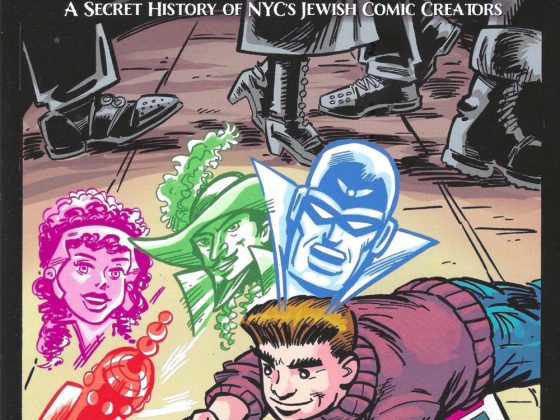I stumbled across a piece by Tom Brevoort about some of the first comics he read as a kid, in which Tom took joy at a JSA reprint in SUPER-TEAM FAMILY, and figured it might have appeared to plug the then-recent relaunch of ALL-STAR COMICS. Not illogical, but an example of a frequent type of error made by fans, academics and even those of us with insider experience: assuming logical causality.
It’s possible Nelson Bridwell (who edited that reprint issue) was motivated by the ALL-STAR relaunch; he was a great fan of the Golden Age and curious enough about doings in other editorial offices (as opposed to some others at DC at that time) that he’d have been aware of it. But it’s equally likely he chose the story for a JLA 100-Page issue a year before that got cut to ordinary periodical size, or just thought the first super-team belonged in his first reprint collection of that name. I have no memory of the events, but I’d lean to the former theory…but with no more certainty than Tom, even though I was working a few feet away from Nelson at the time.
My favorite illustration of the randomness of the day was my own experience on STALKER. The series was launched when Carmine Infantino asked a couple of editors for sword & sorcery titles, presumably motivated by CONAN’s success for Marvel. As Joe Orlando’s assistant editor, I used my inside track to pitch an idea as a sword & sorcery fan, and he got Steve Ditko and Wally Wood to illustrate it. An astounding bit of luck for a 17-year old new writer.
Carmine, however, wasn’t impressed by the material as it crossed his desk in cover design sessions, and cancelled the title as of the third issue. When Carmine’s secretary, Shelley Abramson, typed up the December 1975 production schedule though, she accidentally included STALKER #4. In those dinosaur days, correcting it would have meant retyping the entire page, and Carmine decided to simply let us have a fourth issue. Random enough for you?

As Freud said many times, there is no “random” actions that we commit. I suggest that the secretary thought it was a good idea and her “subconscious” directed her to accidentally type it up as a means for getting it front of the editor. It would be too threatening and risky if she overtly told him it was a good idea and he made a mistake, While Infantino was not as controlling as editor Mort Weisinger, he did like to be the “boss” For all we know, the secretary wanted to be an editor (after working for Carmine, she realized she could do it too) and this was, albeit subconsciously, an intentional career building strategy.